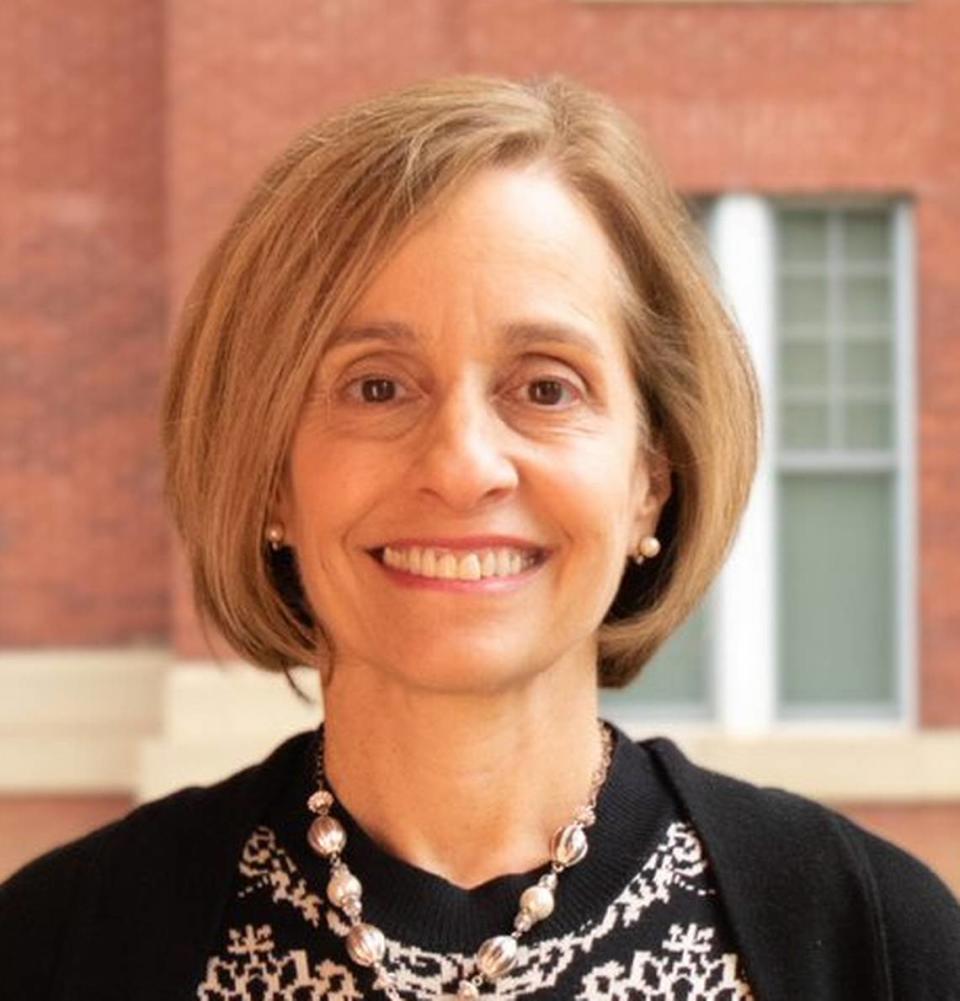Rosh Hashanah: Repentance isn’t for Jews alone. | Opinion
I recently learned from German theologian and Professor Emerita of Religion at St. Mary’s College of Maryland, Katharina von Kellenbach, that “Repentance is not about repairing the past but about building a different future.”
As one of the thousands of Jews across North Carolina who will spend this weekend at festive meals and in the synagogue celebrating Rosh Hashanah and ushering in a New Year, that concept will be on my mind. This holiday represents the start of a 10-day journey of repentance ending in a 25-hour fast on Yom Kippur, the Day of Atonement.

During Rosh Hashanah, the Jewish community is immersed in prayer. However, our goal is not to just look back, but to look forward. Let us not dwell on the past but work together to build a brighter future. I will be thinking about our safety, about hope and celebration, and about our perseverance for democracy.
On one hand, My prayerful focus this weekend will be on the Jewish community. In August, our Jewish Clergy Association organized a gathering of representatives from 30 Jewish organizations in the state to learn from the FBI, Anti-Defamation League and Secure Communities Network about how to better understand antisemitism and keep our communities safer.
As a program leader, I was asked to send a follow-up email to attendees that included a “STOP THE BLEED ®” brochure in the event that we need to be first responders after an act of violence. I hit “send” in disbelief that this is the state of our world.
With my prayer book in hand, I will say goodbye to the year 5783, thinking about the alarming global rising tide of antisemitism. At the same time, I will look forward with hope, committed to co-creating a Jewish community built on pride and celebration, rather than fear.
As Jews, we are not alone in confronting a world turned upside down by hate and violence. I will be thinking about my colleagues’ and congregants’ children who attend UNC-Chapel Hill and were traumatized not once, but twice, in recent weeks as they faced panicked lockdowns for hours — and a professor was tragically murdered.
Equally as tragic has been the futility I’ve heard from the parents with whom I’ve spoken about solutions. We are presented with a choice. We can either keep building forts at our schools and places of worship or we can address the problem in partnerships that go beyond political affiliations. My repentance this year will require me to get to learn more about how common ground can be found to ensure our kids are safe so that they can learn and grow.
Lastly, I will be reflecting on democracy in America and in Israel. My Israeli colleagues leading the progressive movement in Israel recently wrote that as we enter this New Year of 5784 and celebrate Israel’s 75th birthday, we need to recognize its real and extraordinary accomplishments while acknowledging that Israel, like the US, is a work-in-progress. I’ll be there to support the hundreds of thousands of Israelis demonstrating to defend democracy. Israel means too much to me to not be engaged in continuing to actualize the vision embedded in its Declaration of Independence of a Jewish and democratic state based on freedom, justice, and peace.
Repentance isn’t for Jews alone. Professor von Kellenbach knows personally about the journey to repentance that encapsulates the Jewish holy time we are entering. When she was a teenager she learned that her uncle was an SS officer, the deputy commissioner of the town of Pinsk, Belarus, who oversaw the action that murdered 30,000 Jews. As an academic, she makes it her life’s work to address her family’s and country’s painful past by teaching about the Holocaust, Christian-Jewish relations, and anti-Jewish teachings in Christianity. She is creating a better future by passing on knowledge to build a world of religious coexistence.
In contrast to the secular New Year which is often celebrated with parties, champagne and personal resolutions, I and the Jewish community will welcome our Jewish New Year with a focus on family meals, worship services and with 10 days of solemn reflection grounded in repentance. Our confessional prayers are in the plural; we are responsible to create solutions for the struggles of our community. The best way we can take responsibility for our past collective complacency or complicity, is by committing to creating a better future.
Rabbi Judy Schindler is Director of the Stan Greenspon Holocaust and Social Justice Education Center at Queens University of Charlotte and co-chair of the North Carolina Jewish Clergy Association.

